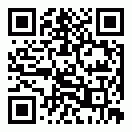Dave's weblog provides comment on a "Roadmap for the Personal Learning Landscape" with a link to a downloadable pdf and visual version of a Future VLE created by Scott Wilson. Dave and team are working on Elgg "a fully featured electronic portfolio, weblog and social networking system, connecting learners and creating communities of learning." You can create an Elgg account (free) and experiment. Elgg allows you to easily create your own weblog and groups, provides an access privileges function, lets you upload files eg photos and docs and share with friends (FOAF) and has a useful tags and keywords feature . It has a cool tutorial.
Elgg adds another avenue into the ever expanding range of tools which facilitate personalisation, customisation and social collaboration.
Thursday, April 21, 2005
Saturday, April 16, 2005
Blogtalk Down Under Conference May 2005
BLOGTALK DOWN UNDER Conference
Sydney – 2 workshops on the 19th May plus Conference on 20 21 22 May
Sydney – 2 workshops on the 19th May plus Conference on 20 21 22 May
Friday, April 15, 2005
Podcasting and Vodcasting paper
I came across this downloadable resource - a White Paper on Podcasting and Vodcasting from the University of Missouri (March 2005) via a feed from Stephen Downes OL Daily.
This pdf is one of the best resources I have seen to date in this emerging technology. It includes definitions, metaphors, resources, how to's, pedagogical implications of how these technologies can be used in school and higher education supported by clear diagrams and a range of resource links.
This pdf is one of the best resources I have seen to date in this emerging technology. It includes definitions, metaphors, resources, how to's, pedagogical implications of how these technologies can be used in school and higher education supported by clear diagrams and a range of resource links.
Thursday, April 14, 2005
An interesting article on self directed student learning blog by Eric Wilson (Apr 5, 2005) on the rise of 'Net Gen learners' in Unis. This refers to a clash of cultures between the new "wave of young people empowered to create knowledge, not merely absorb it" and traditional ways. This new generation has been dubbed the "Millennials."
Here is an extract from the blog.
Individuals raised with the computer deal with information differently compared to previous cohorts: "they develop hypertext minds, they leap around." A linear thought process is much less common than bricolage, or the ability to or piece information together from multiple sources.
The major differences as outlined make very interesting reading.
The book, "Educating the Net Generation", has been published by Educause.
Here is an extract from the blog.
Individuals raised with the computer deal with information differently compared to previous cohorts: "they develop hypertext minds, they leap around." A linear thought process is much less common than bricolage, or the ability to or piece information together from multiple sources.
The major differences as outlined make very interesting reading.
The book, "Educating the Net Generation", has been published by Educause.
Friday, April 08, 2005
Pew Report on popularity of podcasting
The Pew Report , "Podcasting catches on" (3rd April 2005) provides some interesting statistics on the growing phenomenon of podcasting in the US. See Podcasting Directory for examples.
The Pew Report states that ...
... 22 million American adults own iPods or MP3 players
... 29% have downloaded podcasts from the Web
... more males than females own such devices
Odvard Egil Dyrli in an article, "Do-it-yourself radio is spreading across the Internet like wildfire," provides a perspective and some URLS on schools and podcasting.
Check the latest chart of internet activities on the Pew Report site. It ranges from a high 90% for using e-mail, 73% getting news, 62% making travel reservations, 36% paying bills online, 10% creating blogs and &% making a phone call online.
The incredible growth in the blogosphere in such a relatively short time should make interesting reading when updated statistics are next published.
The Pew Report states that ...
... 22 million American adults own iPods or MP3 players
... 29% have downloaded podcasts from the Web
... more males than females own such devices
Odvard Egil Dyrli in an article, "Do-it-yourself radio is spreading across the Internet like wildfire," provides a perspective and some URLS on schools and podcasting.
Check the latest chart of internet activities on the Pew Report site. It ranges from a high 90% for using e-mail, 73% getting news, 62% making travel reservations, 36% paying bills online, 10% creating blogs and &% making a phone call online.
The incredible growth in the blogosphere in such a relatively short time should make interesting reading when updated statistics are next published.
A "swarm of interest"
Another gem from Robin Good refers to a "swarm of interest" in online resources points to some online tools with the tasty names such as Trendalicious and Populicious, which make use of the more well known del.icio.us (social bookmarks manager site). Clever?
Thursday, April 07, 2005
Blogger credibility
Robin Good's item on his MasterNewMedia "How To Measure A Blogger's Popularity And Reach: The Big Jump" provides a list of key indicators to use to determine what credibility and authority one can apply to any in the burgeoning ranks of bloggers, news reporters et al. This includes a check on their Technorati standing.
Sunday, April 03, 2005
Videoblogging wiki
Excellent wiki reference on videoblogging. Includes links to mefeedia service which creates a RSS feed (with enclosures) for your videoblog. Check the videoblog worldmap for a global pattern.
Subscribe to:
Posts (Atom)




